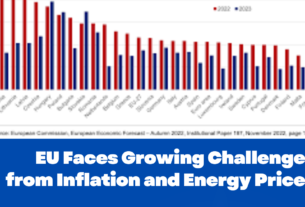The Bank of England (BoE) is facing heightened challenges in setting interest rates due to a sharp rise in global oil prices, driven by escalating geopolitical tensions between Israel and Iran. The conflict has sparked fears of disruptions to global oil supplies, particularly through the Strait of Hormuz, a key route for both oil and liquefied natural gas (LNG) shipments.
As of mid-June 2025, Brent crude oil prices have surged by over 10%, reaching around $74.60 per barrel. This significant increase has raised concerns about an “adverse shock” to the global economy, including the UK, by intensifying inflationary pressures on fuel and consumer goods. While the Bank of England’s Monetary Policy Committee (MPC) is expected to keep the base interest rate at 4.25% in the short term, the surge in oil prices complicates projections and policy decisions for the coming months.
Chancellor Rachel Reeves has warned that continued conflict in the Middle East could lead to even higher energy costs, especially if Iran acts on its threat to block the Strait of Hormuz. This strait is crucial to the global energy market, with approximately a fifth of the world’s oil and a third of LNG passing through it. Economists caution that any prolonged disruption could result in a further spike in inflation, making everyday goods and services more expensive for UK consumers.
The MPC remains divided over the best course of action, as seen in its May meeting, where members were split between maintaining the current rate and initiating a cut. The broader economic landscape adds to the uncertainty, with weak GDP growth, volatile employment figures, and unpredictable global trade dynamics creating a murky outlook. The BoE has also faced criticism for its lack of clear communication and reliance on scenario-based forecasting, which some analysts argue has done little to clarify its strategy amid economic turbulence.
Looking ahead, some experts believe the BoE might consider a rate cut in August if economic data continues to deteriorate. However, the recent oil price surge introduces a new risk factor, potentially delaying any easing of monetary policy. As the BoE seeks to balance inflation control with economic support, rising energy costs could make its decision-making process even more complex in the months ahead.




